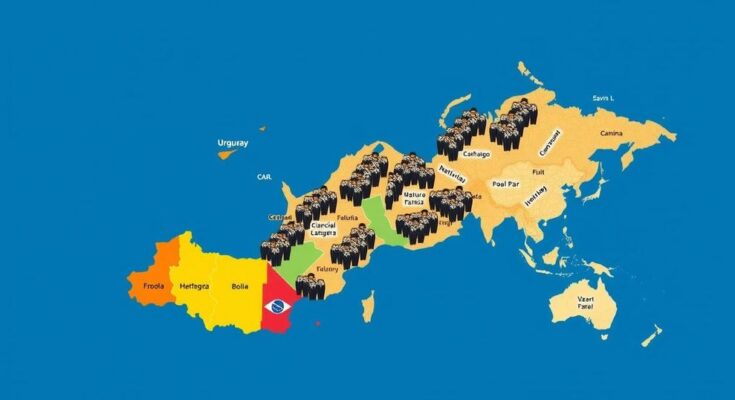Uruguay, known for its political stability, maintains a legacy of democratic values amidst regional turmoil. Recent elections showcased a peaceful and congratulatory transfer of power; however, economic inequality and social unrest pose potential threats to its future stability. It remains essential for Uruguay to tackle these issues to safeguard its democratic model.
Amidst the political turbulence sweeping across South America, Uruguay stands out as an island of stability. The recent presidential elections saw defeated candidates promptly congratulating their victorious opponents, demonstrating a rich tradition of democratic civility. Yet, beneath this veneer of political order lie underlying issues, including growing inequality and social discontent, that could threaten the nation’s future stability. As political dynamics shift regionally, it is crucial to scrutinize whether Uruguay’s model of democracy can sustain itself against potential threats.
Uruguay, a small nation sandwiched between the politically volatile countries of Brazil and Argentina, has historically been viewed as a model of democratic governance. Its recent elections highlighted a peaceful transition of power that seems to contrast sharply with the chaos observed in its neighbors. However, as Uruguay’s political climate evolves, there is growing concern about economic disparities and discontent among its populace, which may challenge its democratic framework.
In conclusion, while Uruguay exemplifies a stable and functioning democracy compared to its neighbors, underlying socio-economic issues warrant close attention. The recent elections have showcased a commitment to democratic values, yet the country must address these latent problems to maintain this stability. The future of Uruguay’s model democracy may very well depend on its ability to adapt to and resolve these emerging challenges.
Original Source: www.barrons.com




